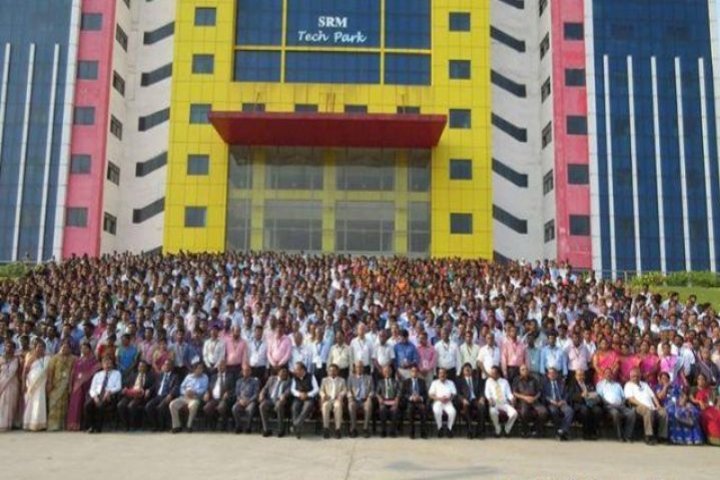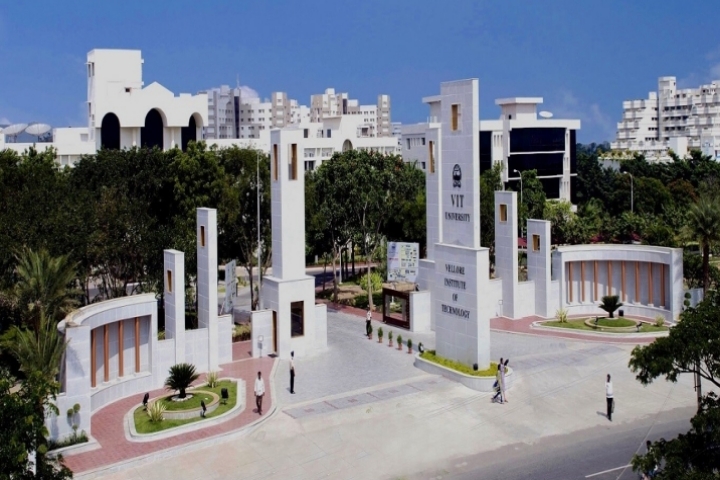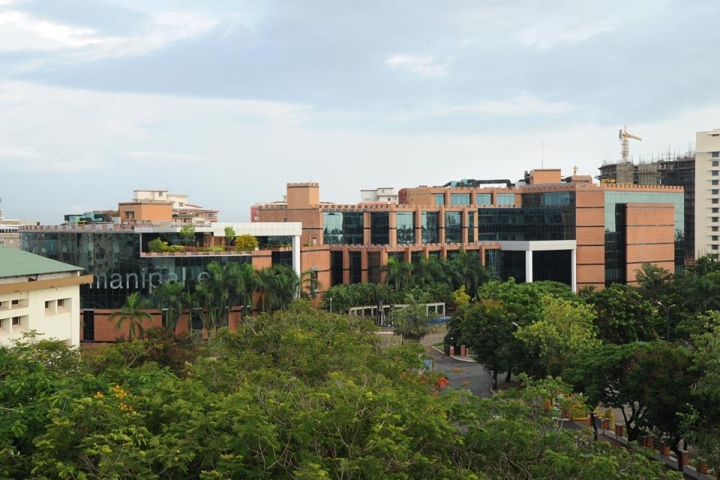
Internet of Things Course Details - Fees, Subjects, Syllabus, Duration, Eligibility, Career Scope
Degrees offered: B.E /B.Tech, M.E /M.Tech., B.Sc., M.Sc., B.C.A.
What is Internet of Things
Internet of Things popularly abbreviated as IoT is a course that focuses on the technology and applications that connect everyday devices to the internet, enabling them to collect, exchange, and process data. The core ideas of Internet of Things are covered, along with information on its architecture, protocols, and related hardware and software. Students learn about sensors, microcontrollers, and communication technologies that form the backbone of IoT systems.
An IoT course covers topics such as cybersecurity, cloud computing, and data analytics, all of which are essential for managing and safeguarding the enormous amounts of data produced by Internet of Things devices. Students investigate a range of real-world IoT applications in sectors such manufacturing, smart homes, healthcare, and agriculture. They also study about the difficulties and moral issues related to IoT implementation.
As of now, 270 colleges in India offer Internet Of Things courses. Graduates can be placed in companies like Bluepixel Technologies LLP, Cisco, Qualcomm, Robert Bosch, Mindtree, Sasken. Some of the most common job profiles are IoT Developer, Data Analyst, IoT Security Specialist, Smart City Consultant. The average salary of the same is Rs. 10.5 LPA depending on the skills and work experience of graduates.
Highlights- Internet Of Things
Particulars | Values |
Branch Name | Internet Of Things |
Degree | B.C.A., B.E /B.Tech, B.Sc., B.Sc.(Hons), M.Tech, B.Voc., BS |
Duration | UG: 3 years PG: 2 years |
Eligibility | UG: 10+2 in the science stream PG: Bachelor’s degree in a similar field |
Admission Process | Admission Examination/ Direct Admission |
Entrance Exam | UG: JEE Main, CUET UG, TS EAMCET PG: GATE |
Course Fees | Rs. 6,000- Rs. 15 Lakhs |
Job profiles | IoT Developer, Data Analyst, IoT Security Specialist, Smart City Consultant |
Average Salary | Rs. 10.5 LPA |
Recruiting Companies | Bluepixel Technologies LLP, Cisco, Qualcomm, Robert Bosch, Mindtree, Sasken |
Specialisation or Similar Ones
Internet Of Things offers a variety of specialisations and similar fields that cater to different industries and technology needs. These specialisations enable professionals to tailor their skills to specific sectors, enhancing their expertise and employability in the development and drafting field. Some of the specialisations or similar fields in Internet Of Things are:
IoT Systems Design and Development | Smart Homes and Buildings |
IoT Security | IoT Data Analytics |
Smart Cities | Wearable Technology |
Top Private Internet Of Things Colleges in India with Fees
Internet Of Things courses are provided by many private colleges at both undergraduate and postgraduate levels. A private institute is much more expensive as compared to a Government institute. In the table below, we have listed the top private colleges in India offering Internet Of Things courses in India.
Colleges | Fees |
Rs. 15 Lakhs | |
Rs. 7.80 Lakhs | |
Rs. 4 Lakhs | |
- | |
Rs. 14.35 Lakhs | |
Rs. 3.57 Lakhs | |
Rs. 16.75 Lakhs | |
Rs. 11.45 Lakhs | |
Rs. 3 Lakhs | |
Rs. 6.32 Lakhs |
Note: The fee structure provided above can be for any particular Internet Of Things course (Diploma/ Degree/PGD).
Top Government Internet Of Things Colleges in India
Students can also study the same at many government institutes in India. Generally, government institutes are comparatively cheaper as compared to private institutes. Students get a good return on investment along with high-paying job opportunities after graduation. In the following table, we have mentioned the popular public institutes along with their respective fees.
Colleges | Fees |
- | |
Rs. 1.20 Lakhs | |
Rs. 3.91 Lakhs | |
Rs. 1.78 Lakhs | |
Rs. 10.97 Lakhs | |
Rs. 6.60 Lakhs | |
Rs. 1.31 Lakhs | |
Rs. 6,600 | |
Rs. 6.32 Lakhs | |
- |
Eligibility Criteria (UG & PG) of Internet of Things
Each course has its own set of eligibility requirements that applicants must meet to be considered eligible for admissions. Students wishing to apply for Internet Of Things courses must meet the basic admission requirements to be admitted to the college of their choice. The prerequisites for enrolling in the Internet of Things programme are as follows.
Eligibility Criteria for UG Courses
Candidates interested in pursuing an Internet Of Things degree at the undergraduate level are required to fulfil certain eligibility requirements. They must check the admission requirements before applying to their desired course and institute. These eligibility conditions may vary by the institute. However, mentioned below are the eligibility criteria for Internet Of Things at the undergraduate level.
- The aspiring candidates must have procured a minimum aggregate of 50 per cent marks in 10+2 level from any recognised board.
- The aspirants must have completed their higher education in the science stream.
- For students belonging to the reserved categories such as SC/ST or OBC, there may be some relaxation in the aggregate percentage.
- The individuals must clear the cutoff of the relevant entrance examinations.
Top Entrance Exams for UG Courses
Candidates who wish to pursue Internet Of Things at an undergraduate level must appear for certain relevant entrance examinations. Many colleges may also conduct university-specific examinations for undergraduate degrees in Internet Of Things. For admissions, some colleges only consider the merit scores of students, however, others may consider merit-score and entrance examination scores.
Exam Name | Level | Conducting Body | Exam Schedule |
National | National Testing Agency | ||
National | National Testing Agency | ||
State | Jawaharlal Nehru Technological University Hyderabad |
Eligibility Criteria for PG Courses
The eligibility criteria to pursue post graduation in Internet Of Things may vary by the institute. However, candidates should have completed their Bachelor's degree in Internet Of Things or a related discipline with a valid aggregate score. Some universities may also choose to conduct entrance examinations. The general eligibility requirements for postgraduate courses are as follows.
- A candidate must graduate with a relevant Bachelor’s degree in Internet Of Things or Electronics and communication or Computer Science.
- Aspirants must have completed their bachelor’s with a minimum of 50 per cent marks.
- A student is required to clear the entrance exam with the required cut-off marks decided by the College or University to secure admission to pursue post-graduation in Internet Of Things.
Top Entrance Exams for PG Courses
Candidates aspiring to pursue an Internet Of Things course at the postgraduate level must appear for specific entrance examinations. Exams can be conducted at national, state, and university levels. In the table below, we have mentioned the popular entrance examination for PG-level degrees in Internet Of Things.
Exam Name | Level | Conducting Body | Exam Schedule |
National | IISc Bangalore and seven IITs |
College Predictors VIEW ALL
Scope of Internet of Things in India and Abroad
The increasing focus on digital transformation and smart infrastructure in India is driving a significant expansion in the scope of Internet of Things (IoT). Smart Cities Mission and Digital India have created a strong demand for IoT workers to create and manage complex systems for various industries. IoT solutions are being integrated by businesses to streamline operations, cut expenses, and boost productivity.
Internationally, the scope of IoT is even broader, with advanced economies and tech-driven industries investing heavily in IoT applications to create smart homes, cities, and industries. The need for skilled IoT specialists is still high due to the ongoing development of IoT technology, offering a wide range of employment opportunities and room for expansion on a global scale.
Course Fees Internet of Things
| Minimum Fees | Maximum Fees | |||
|---|---|---|---|---|
| Private | Government | Private | Government | |
| UG | ||||
| PG | ||||
| DOCTORAL | ||||
| DIPLOMA | ||||
Course Subjects
The academic curriculum of Internet Of Things differs by the institute. The subjects included in the curriculum of Internet Of Things equip students with the necessary theoretical and practical knowledge. It provides a holistic growth potential to students that helps them to further excel in their careers. Mentioned below are the undergraduate and postgraduate course curriculums of Internet Of Things.
Internet Of Things Syllabus for UG Courses
The Internet Of Things syllabus at the undergraduate level depends on the preferred institute. The academic curriculum of Internet Of Things is a combination of theory and practical subjects. However, some of the core subjects remain the same for every syllabus. In the table below we have provided the syllabus of B.Tech. in Internet Of Things provided by Malla Reddy College of Engineering and Technology:
First Semester | Second Semester |
Basic Electrical Engineering | Applied Physics |
Computer Aided Engineering Graphics | Analog and Digital Electronics |
Programming for Problem Solving | Python Programming |
Basic Electrical Engineering Lab | Python Programming Lab |
Programming for Problem Solving Lab | Engineering and IT Workshop |
Third Semester | Fourth Semester |
Data Structures Using Python | Design and Analysis of Algorithms |
Computer Organization and Microprocessor | Internet of Things |
Operating Systems | Automata and Compiler Design |
Probability and Statistics | Object Oriented Programming through Java |
Managerial Economics and Financial Analysis | Database Management Systems |
Computer Networks and Operating Systems Lab | Object Oriented Programming through Java Lab |
Fifth Semester | Sixth Semester |
Artificial Intelligence | Machine Learning |
Embedded Systems and Design | Mobile Application Development for IoT |
Wireless Sensor Networks | Mobile Application Development for IoT Lab |
Embedded Design Lab | Application Development II |
Artificial Intelligence Lab | Machine Learning Lab |
Seventh Semester | Eighth Semester |
Big Data Analytics | Innovation, Start-up & Entrepreneurship |
Blockchain Technology | Major Project |
Deep Learning | - |
Mini Project | - |
Internet Of Things Syllabus for PG Courses
The academic curriculum of PG courses in Internet Of Things equips students with the necessary knowledge and skills required to excel in the field. The syllabus covers a range of topics. It also includes a thesis to equip students with the necessary research skills and knowledge. In the table below we have provided the syllabus of VJTI Mumbai for the M.Tech Internet Of Things course.
First Semester | Second Semester |
Computational Methods | Research Methodology & IPR |
Principles of IoT | IoT Security |
Intelligent Agents and Learning Machines | Industrial Internet of things |
Principles of IoT | Industrial Internet of things |
Third Semester | Fourth Semester |
Skill Based Course | Skill Based Course |
Self-Learning Course | Self-Learning Course |
Dissertation Phase-I | Dissertation Phase-I |
Careers in Internet of Things
Careers in the Internet of Things (IoT) are thriving as the technology becomes increasingly integrated into various industries and everyday life. The industry offers a wide range of creative and inventive employment options that support digital transformation and connection. Some of the most common career options for graduates in Internet Of Things are:
Job Profiles | Job Descriptions |
IoT Developer | IoT Developers are responsible for designing, coding, and testing software applications that connect IoT devices to networks, enabling them to communicate and exchange data. They work with sensors, microcontrollers, and various programming languages to create innovative solutions. |
Data Analysts evaluate and analyse data gathered from IoT devices in order to get valuable insights, enhance decision-making, and maximise system performance. They use data visualisation tools, statistical methods, and machine learning algorithms to identify patterns and trends that help enhance business processes and user experiences. | |
IoT Security Specialist | IoT Security Specialists ensure the safety and integrity of IoT networks and devices by implementing robust security measures, protecting against cyber threats, data breaches, and unauthorised access. In order to secure IoT systems and uphold user confidence, they create security procedures, keep an eye out for vulnerabilities, and carry out risk assessments. |
Smart City Consultant | Smart City Consultants integrate IoT solutions to advance sustainability, strengthen public services, and improve urban infrastructure. In order to build more interconnected and effective cities, they design and implement smart technology in fields like public safety, energy efficiency, and traffic control. |
Upcoming trends
In order to accommodate the expanding network of smart devices, future developments in the Internet of Things (IoT) will concentrate on improving connectivity, security, and data management. The Internet of Things is expected to advance due to innovations like edge computing, 5G technology, and AI integration, which will allow for quicker, more dependable, and intelligent interactions.
- 5G Integration
- Edge Computing
- Artificial Intelligence and Machine Learning
- Enhanced IoT Security
- Interoperability Standards
- IoT in Smart Cities
- Sustainability and Green IoT
Job Profiles and Top Recruiters
The Internet of Things (IoT) industry offers a wide range of job profiles, including those that concentrate on the development, implementation, design, and security of IoT devices and systems. Experts in this field strive to incorporate smart technologies into commonplace uses, ranging from healthcare and city administration to smart homes and industrial automation.
Top Recruiters:
- Bluepixel Technologies LLP
- Cisco
- Qualcomm
- Robert Bosch
- Mindtree
- Sasken
Average Salary
The average salary of an Internet Of Things graduate may vary depending on various factors. It can vary depending on the work experience and the job role opted by the graduates. The chances of growth in average salary of graduates in this career are immense. In the table below we have mentioned the salary of some of the popular job profiles.
Job Profiles | Average Expected Salary |
IoT Developer | Rs. 11 LPA |
Data Analyst | Rs. 10.9 LPA |
IoT Security Specialist | Rs. 9.6 LPA |
Smart City Consultant | Rs. 10.1 LPA |
Source: Ambition Box
The salary figures mentioned anywhere in these articles are just for reference purposes. Please treat them as such. Actual salaries may vary depending on respective candidates, employer, job location and numerous other factors.
Required Skillset for Internet of Things
Students who pursue Internet Of Things courses must possess some specific skills that are necessary to develop a better understanding of course subjects and a key to excel as an Internet Of Things graduate. During the course, candidates can learn many more skills which enhance their position in the industry. Some of the required skills for the field are:
- Programming Knowledge
- Hardware and Networking
- Data Analytics
- Attention to Detail
- Cybersecurity
- Cloud Computing
- Understanding of Machine Learning and AI
Course Curriculum for Internet of Things
The Internet of Things (IoT) course curriculum usually starts with foundational themes that educate students to the fundamental ideas of the IoT, such as its hardware components, protocols, and architecture. To give students a thorough grasp of how IoT devices communicate and interact with cloud platforms for data processing and storage, basic networking principles and cloud computing are also covered.
The curriculum goes deeper into more complex subjects as students proceed, such as cyber-security in the context of the Internet of Things, machine learning, and data analytics. This covers instruction in managing large data sets produced by Internet of Things devices, utilising data analytics software, and putting machine learning algorithms to use in order to extract insights and make forecasts.
Popular Internet of Things Entrance Exams in India
JEE Main
Declaration of Result: 17 Apr, 2025
COMEDK UGET
Exam Date: 10 May, 2025
CUET UG
Exam Date: 08 May, 2025 - 01 Jun, 2025
VITEEE
Exam Date: 20 Apr, 2025 - 27 Apr, 2025 (Tentative)
Popular Internet of Things Colleges in India VIEW ALL
MIT Manipal
- Fees: ₹ 400000
- Exams: GATE , MET M.Tech
Frequently Asked Questions (FAQs)
Question: What are the top recruiters that offer jobs?
Answer :
Some of the top recruiters that offer jobs for Internet Of Things graduates are MNC Research Centres, Qualcomm, Robert Bosch, Mindtree and Sasken.
Question: What is the Internet Of Things?
Answer :
A network of linked devices that exchange data and communicate with one another online is referred to as the Internet of Things (IoT). These gadgets, which range from commonplace household objects to large industrial gear, gather and share data via sensors and software to facilitate automation and wise decision-making.
Question: What is the scope of Internet Of Things?
Answer :
The Internet of Things (IoT) has a wide range of applications that improve efficiency and connection, including smart homes, healthcare, industrial automation, transportation, and more. IoT adoption presents enormous potential for innovation, better decision-making, and the development of new business models in a variety of industries.
Question: What is the average salary available for Internet Of Things graduates?
Answer :
The average salary range for the Internet Of Things graduates is around Rs. 10.5 LPA.
Question: What job profiles are offered to the Internet Of Things graduates?
Answer :
The roles offered to Internet Of Things graduates are IoT Developer, Data Analyst, IoT Security Specialist and Smart City Consultant.





















